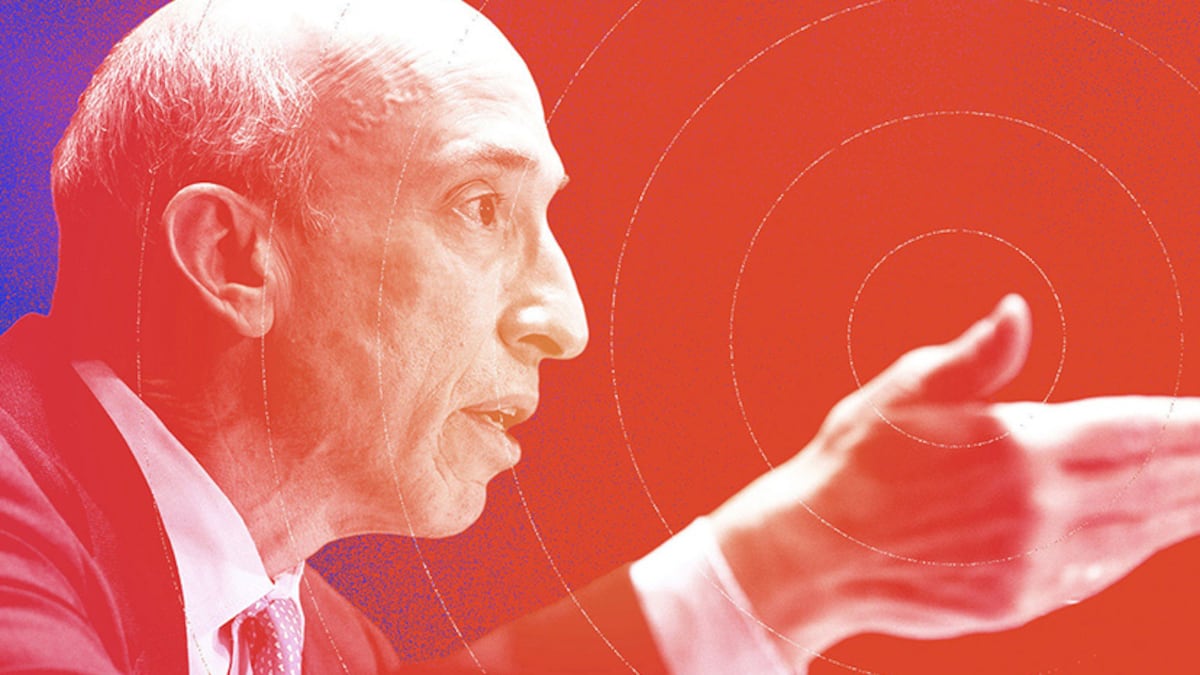The Securities and Exchange Commission’s recent moves to crack down on crypto projects is spooking the industry, and some warn the regulator is just getting started.
“There is a coordinated action across federal agencies to choke off and reverse the growth of digital assets,” Eric Hess, founder and managing counsel of Hess Legal Counsel, told DL News. “The SEC is going directly after some of the core elements of the digital asset ecosystem. Combined with banking restrictions, it appears that coordinated action is intended to starve the ecosystem.”
After the SEC issued tokenisation platform Paxos with a letter informing it of possible legal action for violating investor protection laws, the firm said it will end its relationship with exchange Binance and stop minting the BUSD stablecoin, the Wall Street Journal reported. The New York Department of Financial Services also ordered Paxos to cease minting the token.
The moves come as the SEC last week ordered Kraken to shut down its Ethereum staking service in the US.
so the issue was that binance bridged BUSD to BSC? pic.twitter.com/QnB8qFnIXr
— 0xngmi (@0xngmi) February 13, 2023
And the Board of Governors of the Federal Reserve said on February 7 that the Fed would “presumptively prohibit” its member banks from owning crypto assets, after rejecting an application by crypto bank Custodia.
Rory Doyle, financial crime policy manager at software firm Fenergo, told DL News that he expects to see more penalties against crypto firms as regulators look to deter financial crime. He said the rise in fines is probably because crypto is maturing to the point that it’s attracting notice around corporate governance, anti-money laundering controls, and inspections, but these aren’t quite robust enough yet to calm regulators. And this is occurring just as regulators are back to full force after a pandemic-induced lull in inspections.
Gabriel Shapiro, general counsel for research firm Delphi Labs, told DL News the SEC’s most recent actions are well-timed for the regulator, amid a slew of crypto scandals that make it difficult to defend the industry and the ascendancy of regulators appointed by President Joe Biden who he claimed have activist regulatory agendas.
”Crypto is about disintermediation and runs directly counter to the goals of financial surveillance and financial censorship that have become a core part of American finance,” Shapiro said.
Alan Vey, chairman and founder of blockchain business Aventus Networks, told DL News that the SEC’s stance on Kraken was reasonable, considering that Kraken took crypto assets from users and staked them in exchange for advertised annual investment returns of as much as 21%, while also acting as custodian “and thus in a bankruptcy event the users would have to stand in line with all other [creditors.]”
“That being said, it is unusual for a regulator to just fine someone,” he added. “The normal approach is to say, ‘What you are doing is not compliant, you have X days to either stop doing it or change to some other compliant way.’ And only fine them if this is not the case.”
“Who knows what happened behind closed doors, but seems a bit aggressive and maybe the SEC [is] sending a message to the market off the back of FTX.”
FTX was a cryptocurrency exchange that was worth north of $32 billion before it abruptly collapsed in November.
Sharp rise in fines
Data from Fenergo, to be released publicly in a report on March 8, shows that crypto penalties issued by US regulators rose sharply in 2022. The SEC’s $100 million fine on BlockFi, the US Treasury’s fine on Bittrex for just under $30 million, and Robinhood’s fine of $30 million all contributed.
Overall, fines levied on financial firms increased by 151% to around $3 billion; crypto-related fines accounted for almost 90% of that rise, Fenergo said in a press release.
MiCA in the EU
For Hess and Shapiro, the risk of US regulators taking a hardline stance while other jurisdictions appear to be taking a softer approach, is that it could lead to innovative projects moving to those regions instead.
“From a securities enforcement perspective, the US is certainly not the country any new projects should be targeting for issuing unregistered tokens,” Hess said. “The EU’s Market in Crypto Assets (MiCA) regulation is way ahead of the US in setting an operable framework.”.
While SEC Chair Gary Gensler sees the existing securities framework in the US as adequate for regulating crypto and decentralised finance, EU lawmakers have created MiCA as a framework specifically tailored for crypto assets. The EU is due to vote on the proposal in April.
Shapiro said that the US, as the world’s financial superpower, takes a more risk-averse approach to crypto, whereas countries like the UK and Japan feel they have more to gain from new opportunities.
“US politicians and regulators view US capital markets as ‘blue chip’ and believe they should be gated to only allow for the ‘highest quality’ assets, products and services,” he said.
“They would rather preserve the safety and integrity of the current markets and lose some opportunities doing so than allow risks.”
